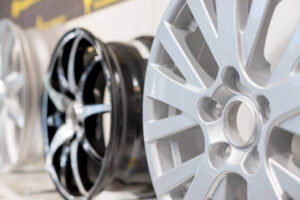CNC sheet metal machining has become a popular choice for fabricators and fabricators, all looking to fabricate high-quality metal parts in a precise and efficient manner, and one of the key factors in doing sheet metal machining is choosing the right material.
This article will explore commonly used materials for CNC sheet metal machining, discussing their characteristics, advantages and limitations.
Stainless steel
Stainless steel has become a popular material for CNC sheet metal processing because of its excellent corrosion resistance, high strength and durability. It is widely used in construction, automotive and aerospace industries. There are several grades of stainless steel, including 304, 316, and 430, each with its own set of properties.
304 Stainless Steel is a versatile and commonly used grade suitable for a wide range of applications. It has excellent corrosion resistance and is easy to machine, making it a popular choice for sheet metal fabrication.
316 stainless steel is a higher grade of stainless steel with increased corrosion resistance and strength. It is commonly used in marine environments and the food and beverage industry where corrosion resistance is critical.
430 stainless steel is a ferritic stainless steel with good corrosion resistance, but lower strength and ductility than 304 and 316. It is commonly used in automotive and appliance applications.
Aluminum
Aluminum is a lightweight and versatile material, making it a popular choice for CNC sheet metal machining. It has good corrosion resistance and is easy to process, making it suitable for a wide range of applications, including automotive, aerospace and construction.
Aluminum for sheet metal fabrication is available in several grades, including 3003, 5052, and 6061.
3003 aluminum is a general-purpose aluminum alloy with excellent corrosion resistance and medium strength. It is commonly used for roofing and siding as well as for sheet metal processing in the automotive industry.
5052 aluminum is a high-strength aluminum alloy with good corrosion resistance. It is commonly used in sheet metal fabrication for marine and construction applications.
6061 aluminum is a heat-treatable aluminum alloy with excellent strength and corrosion resistance. It is commonly used in sheet metal processing for aerospace and automotive applications.
Copper
Copper is a highly conductive and corrosion-resistant material, making it a popular choice for electrical and plumbing applications. It is also used in sheet metal processing for architectural and decorative applications.
Copper used in sheet metal fabrication comes in several grades, including C110, C101, and C280.
C110 copper is a highly conductive copper alloy with good ductility and corrosion resistance. It is commonly used in sheet metal fabrication for electrical and plumbing applications.
C101 copper is a pure copper with excellent electrical conductivity and corrosion resistance. It is commonly used in sheet metal processing for architectural and decorative applications.
C280 copper is a brass alloy with good corrosion resistance and high strength. It is commonly used in sheet metal fabrication for marine and construction applications.
Carbon steel
Carbon steel is a popular material for CNC sheet metal processing because of its high strength and durability. It is commonly used in the construction and automotive industries.
Carbon steel for sheet metal fabrication is available in several grades, including A36, A572, and A1011.
A36 steel is a low carbon steel with good strength and ductility. It is commonly used in sheet metal fabrication for building and construction applications.
A572 steel is a high strength, low alloy steel with good corrosion resistance. It is commonly used in sheet metal fabrication for structural and architectural applications.
A1011 steel is a hot rolled steel with good formability and weldability. It is commonly used in sheet metal processing for automotive and appliance applications.
Each of these commonly used materials has its own set of properties and advantages. When you choose the material for CNC sheet metal processing, you should first consider factors such as application, strength, corrosion resistance and cost, and carefully select the appropriate material. Hope the above content can help you!




